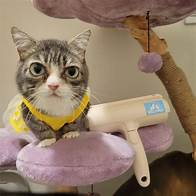Is Ground Clear Safe for Pets?
Many property owners apply chemicals to their lawns to keep them looking healthy and weed-free. While these chemicals may be effective at killing pests and weeds, they can also pose a risk to pets. It is important to know what chemicals are being used on your lawn and to take steps to protect your pets from exposure to them.

What Chemicals Are Used on Lawns?
There are a variety of chemicals that can be used on lawns, including herbicides, pesticides, and fertilizers. Herbicides are used to kill weeds, pesticides are used to kill pests, and fertilizers are used to provide nutrients to the grass. Some of the most common chemicals used on lawns include: Glyphosate (Roundup): This is a broad-spectrum herbicide that is used to kill a wide variety of weeds. 2,4-D (2,4-Dichlorophenoxyacetic acid): This is a synthetic auxin that is used to kill broadleaf weeds. Dicamba: This is a synthetic auxin that is used to kill broadleaf weeds. MCPP (Mecoprop): This is a synthetic auxin that is used to kill broadleaf weeds. Imazapyr (Arsenal): This is a broad-spectrum herbicide that is used to kill both grasses and broadleaf weeds. Atrazine (AAtrex): This is a herbicide that is used to kill broadleaf weeds and grasses. Carbaryl (Sevin): This is a carbamate insecticide that is used to kill a wide variety of insects. Chlorpyrifos (Dursban): This is an organophosphate insecticide that is used to kill a wide variety of insects. Diazinon: This is an organophosphate insecticide that is used to kill a wide variety of insects. Malathion: This is an organophosphate insecticide that is used to kill a wide variety of insects. Acephate (Orthene): This is a carbamate insecticide that is used to kill a wide variety of insects.How Can Chemicals on Lawns Harm Pets?
Pets can be exposed to chemicals on lawns in a number of ways, including: Inhaling the chemicals Eating grass or plants that have been treated with chemicals Licking their paws after walking on treated grass Rolling in treated grass Chemicals on lawns can cause a variety of health problems in pets, including: Skin irritation Eye irritation Respiratory problems Gastrointestinal problems Neurological problems CancerHow to Protect Your Pets from Chemicals on Lawns
There are a number of things you can do to protect your pets from chemicals on lawns, including: Keep your pets off of treated lawns for at least 24 hours after they have been treated. Rinse your pet's paws with water after they have walked on treated grass. Bathe your pet if they have rolled in treated grass. Use a pet-safe lawn care service. Plant pet-friendly plants in your yard.Conclusion
Chemicals on lawns can pose a risk to pets. By taking steps to protect your pets, you can help keep them safe from harm.Declaration: All article resources on this website, unless otherwise specified or labeled, are collected from online resources. If the content on this website infringes on the legitimate rights and interests of the original author, you can contact this website to delete it.


